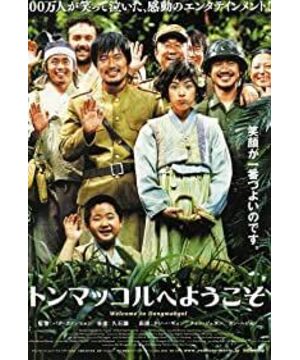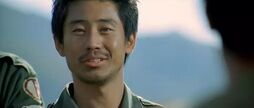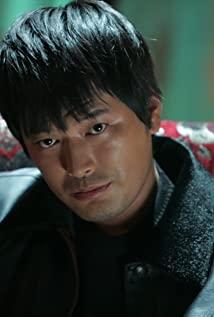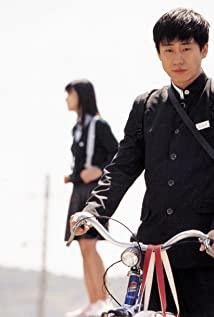Best movie I've seen so far this year, no wonder Korea sent it to the Oscars, I haven't seen Kind Gold and Empty Room, but it's hard to imagine anything more than Dongmok Village.
This is a romantic story, but it carries a heavy meaning. Behind the happy and almost absurd plot is a reflection on the war and a denunciation of the war to kill civilians. Although the director is directing a feature-length film for the first time, his mastery of the rhythm is very sophisticated.
The story is adapted from a play, telling a story like a peach blossom during the Korean War. The National Army, the People's Army and the U.S. Army met unexpectedly in the remote Dongmo Village in Gangwon Province. They were both wary of each other and gradually assimilated by the kindness and simplicity of the residents of Dongmo Village.
From the very beginning of the film, it clearly expresses its attitude towards this war. One from the Southern National Army is a soldier who is afraid of death, and the other is a second lieutenant who is unwilling to kill civilians according to the order. The one from the Northern People's Army refuses to follow orders. The captain who executed his wounded comrade-in-arms, the veteran and young soldier who only knew how to accept orders and didn't even understand the cause and effect of war, and of course the captain of the US Air Force who believed that life should be enjoyable, but was sent to this strange country where the language did not speak inexplicably.
The American army is undoubtedly the biggest villain in the film. They ignore the lives of life on this land, massacre everything, bomb everything, just for the war to be resolved quickly. When the villagers of Dongmo Village first heard about the U.S.-South Korea alliance against the North Korean army, they said, "Two to fight one, it's not fair." When the US military commander decided to bomb Dongmo Village to gain support for the army to continue its northward march During the transport line, a South Korean officer said, "This is too irresponsible."
One of the most exciting scenes in the film is when two people from the National Army and three people from the People's Army confronted each other with machine guns and grenades when they first arrived at Dongmo Village. A group of villagers were caught in the middle. They had absolutely no idea that there was a war at the foot of the mountain, and they had never seen a gun, let alone how powerful it was. For them, a wild boar came down from the mountain was a more important issue, the tension on both sides and the middle The slack, in stark contrast, also scoffs at the ludicrousness of the war.
The wild boar scene after that is equally exciting. In the face of the attack of wild boars, the original hostile people joined forces to fight back. Hisaishi's music made people's blood boil, and the director used slow motion to make every action and expression of the actors extremely exaggerated. Extremely intensified their process of turning hostility into cooperation. The subsequent stealing of pork further demonstrated the friendship of these people. It was a symbolic plot that they took off their military uniforms and put on civilian clothes to go to the farmland together.
The director who was born to shoot commercials, every picture is beautiful to the extreme. Dongmo Village is like a paradise, the popcorn exploding, the guiding lights in the rain, and the scene where the bombs fall at the end are all beautiful like a static picture. The illustrations work perfectly with Joe Hisaishi's music. In these beautiful scenes, the crazy girl played by Jiang Huizhen symbolizes innocence. Her smile may not be the most beautiful, but it must be the purest. So in that rain, Xiao Bing gave her the national flag he treasured to wipe the rain; at the end of the film, her death became the biggest accusation against the war.
In fact, the most important award of the Oscars every year should be the Best Foreign Language Film Award, because all the participating films represent the highest level of films in each country that year. Want to know how big the gap between the Chinese film industry and South Korea is now? Just look at the difference between Dongmo Village and "Wuji".
View more about Welcome to Dongmakgol reviews











